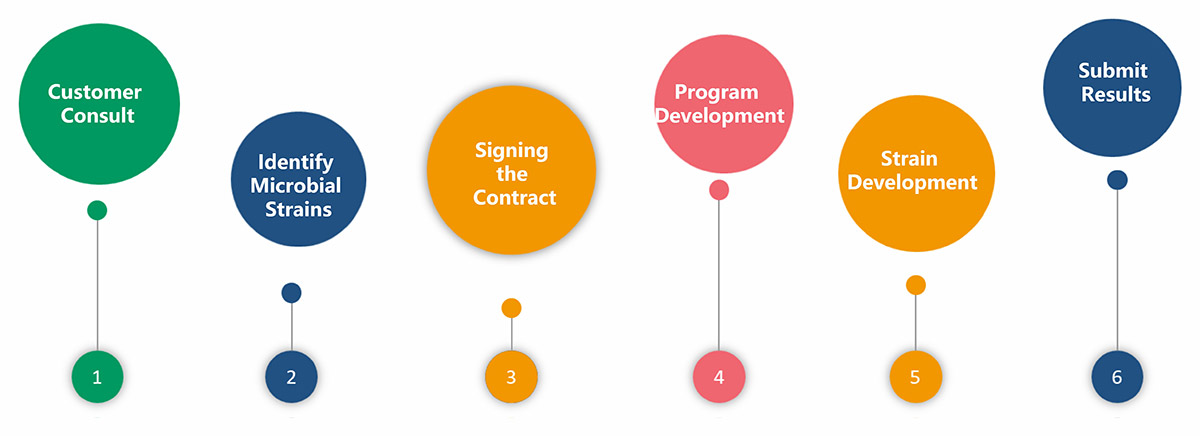
Miraculin is the first discovered sweet protein, it is not sweet itself, but it can change the sour taste into a sweet taste. The duration and intensity of the sweetness-regulating effect of Miraculin depend on various factors, such as the concentration of miraculin and the concentration of acid. As a natural non-sugar sweetener, Miraculin is expected to become a substitute for carbohydrates and sugars and a sweetener for new healthy foods. It may be an ideal sweetener in food for diabetic and obese patients. However, the high cost limits the application of miraculin. As genetic engineering technology develops, microbial fermentation or other methods can produce sweet protein's DNA or mRNA, which provides another idea for its large-scale production.
In the EU, miraculin is considered a novel food, and in Japan, it is approved as a safe food additive. To promote safe mass production of miraculin, Lifeasible provides development services for miraculin production strains to global customers.
The Lifeasible team is committed to providing microbial strain development solutions for low-cost miraculin production through bio-fermentation. To do this, we will first construct a plasmid encoding miraculin, followed by microbial transformation experiments that will transfer the plasmid into the target microbial strain. Microbial strains with miraculin genes are screened using antibiotic screening experiments. We will also use various technical methods to confirm that the strains can express miraculin.
| Service Step | Service Content |
| Microbial strain selection | Our customers can propose microbial strains to be transformed, or we can do it for them. |
| Construction of expression plasmids | The gene encoding miraculin was amplified and ligated into a multisite vector. |
| Amplification of the plasmid | We usually use E. coli DH5α for plasmid amplification and subcloning. |
| Transformation of microbial strains | We transformed the recombinant expression plasmid into Saccharomyces cerevisiae or Aspergillus oryzae and screened the target strain expressing miraculin by antibiotic medium. |
| Identification of transformed strains and miraculin analysis | We can use laboratory methods such as PCR and WB to confirm that the target strain can successfully express miraculin. Then the recombinant miraculin secreted into the culture medium was collected for dimerization and N-glycosylation analysis, miraculin taste modification activity analysis, etc. |
Technical means: plasmid transformation
Microbial strains that can be developed:Saccharomyces cerevisiae, Aspergillus oryzae, etc.
Vectors: multisite gateway three-fragment vector, etc.
Delivery results: microbial strains capable of expressing miraculin, experimental data, pictures, and standard experimental reports.

Lifeasible has extensive experience and has developed microbial strains that successfully express miraculin for customers. We take customers’ needs as the purpose, formulate comprehensive solutions for customers, and provide the most cost-effective miraculin production strains development service. If you have any questions or would like more details, please contact us directly.
Reference